<< Previous | Displaying results 71-80 of 150 for "Kristallnacht" | Next >>
Between 1933-1939, Nazi eugenics and racial hygiene led to policies like mass sterilization and criminalizing marriage between Jews and non-Jews.
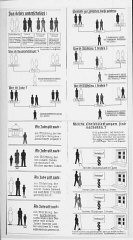
Some German and Austrian Jewish refugees fleeing Nazi persecution before WWII sought safety in Shanghai, which did not require entry visas. Learn about their experiences.
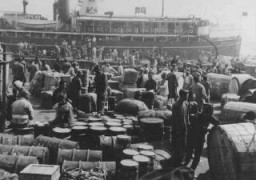
The July 20, 1944, plot was a failed attempt to assassinate Adolf Hitler. Learn more about the July 20 plot, including some of the motivations of the participants.
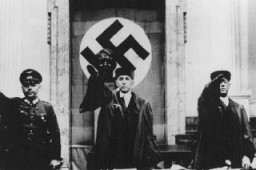
To implement their policies, the Nazis had help from individuals across Europe, including professionals in many fields. Learn about the role of the German police.
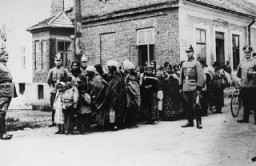
Ernest's family owned a factory that made matzah, the unleavened bread eaten during Passover. In February 1939, three months after Kristallnacht (the "Night of Broken Glass" pogroms), Ernest and his mother fled to Shanghai, one of few havens for refugees without visas. His father and sister stayed behind in Germany; they perished during the Holocaust. A brother escaped to England. Ernest and his mother found work in Shanghai. In 1947, he came to the United States with his wife, whom he met and married in…
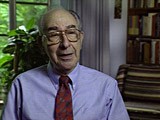
Nazi propaganda had a key role in the persecution of Jews. Learn more about how Hitler and the Nazi Party used propaganda to facilitate war and genocide.
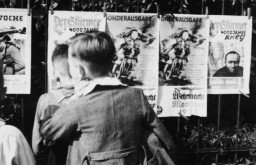
The search for refuge frames both the years before the Holocaust and its aftermath. Learn about obstacles refugees faced when searching for safe havens.
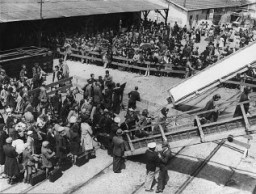
The term Final Solution to the Jewish Question was a euphemism used by Nazi Germany’s leaders. It referred to the mass murder of Europe’s Jews.
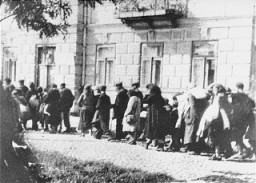
Key dates in the history of the SS (Schutzstaffel; Protection Squadrons), charged with the leadership of the “Final Solution,” the murder of European Jews.
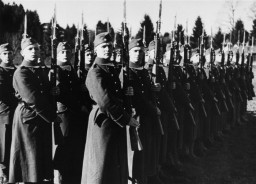
Learn more about the plight of Jewish refugees who attempted to escape Germany between 1933 and 1939.
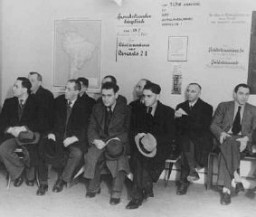
We would like to thank Crown Family Philanthropies, Abe and Ida Cooper Foundation, the Claims Conference, EVZ, and BMF for supporting the ongoing work to create content and resources for the Holocaust Encyclopedia. View the list of donor acknowledgement.